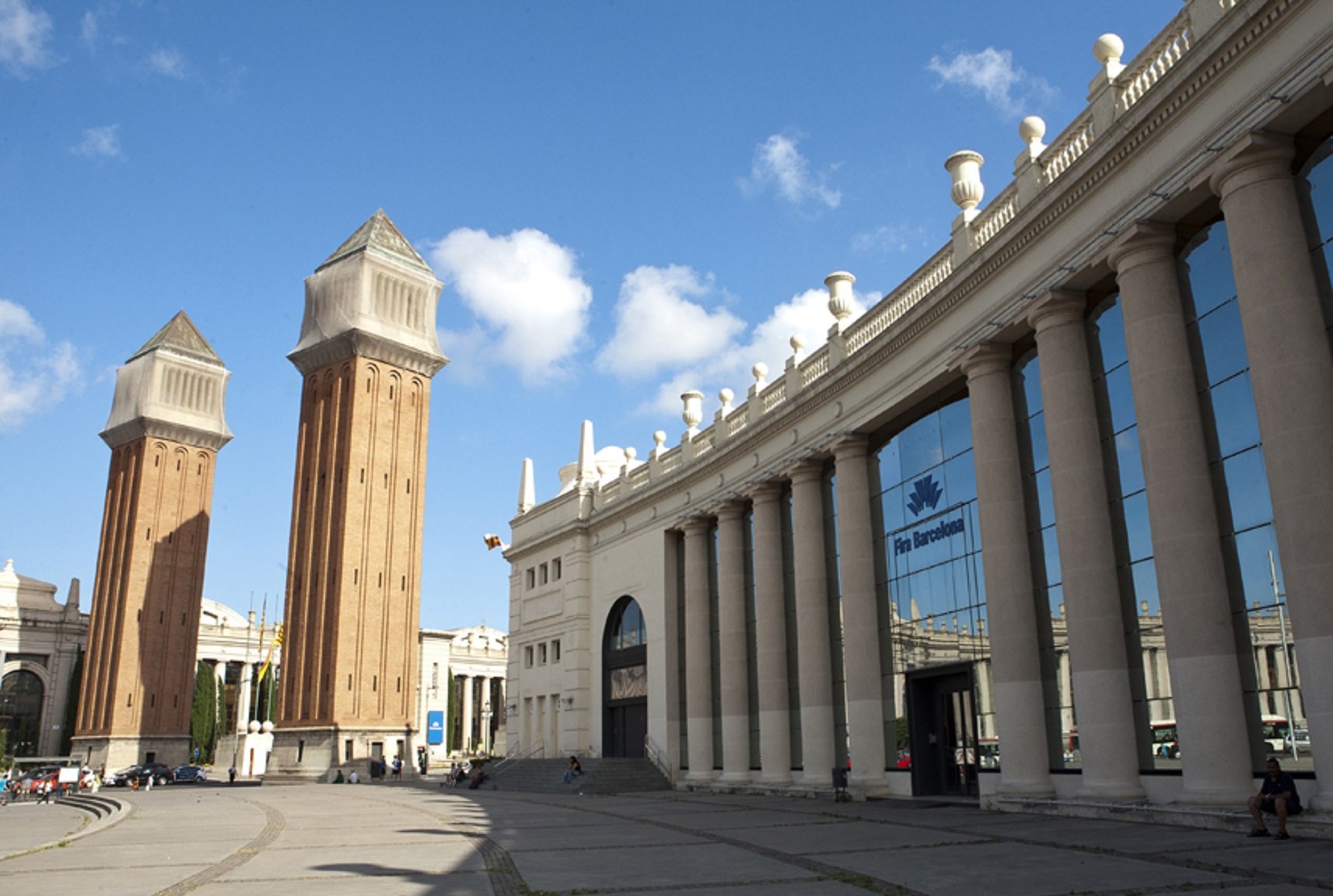The Fira de Barcelona - Barcelona's trade fair complex, near Plaça Espanya - has been chosen to host the large reception centre for Ukrainian refugees in Catalonia. The Spanish social security and migration minister, José Luis Escrivá, announced last week that Barcelona would be one of the three cities chosen to locate the major centres for the reception of Ukrainian refugees in Spanish territory. The other two centres will be located in Alicante and in the city of Pozuelo, near Madrid. The Fira de Barcelona will function as a major Red Cross operations centre, where refugees will have initial needs meet before being sent to a permanent location. It is expected to open this week.
Above, Spanish minister José Luis Escrivá (audio in Spanish)
The centre in the Madrid community will be located in Pozuelo de Alarcón, in a Social Security training space, and the one in Alicante has also been selected for its proximity to Murcia, where there is "an area of concentration of Ukrainians". Escrivá explained that, for this last-named location, the closeness of Alicante airport is also important, and he expressed gratitude for the Valencian administration agreement to make available the disused City of Light film complex for the centre. Escrivá underlined the smooth communication among the administrations over the reception of Ukrainians, both at autonomous community and town council level. And the mayor of Barcelona, Ada Colau, also followed this line, saying: "Barcelona is ready".
Palau Victoria Eugenia
As confirmed by elNacional.cat, the pavilion that will be set up to receive Ukrainian refugees will be the Palau Victòria Eugènia, number 7 of the Montjuïc trade fair space, a space of 6,300 square meters that will be used for initial reception of refugees. The space will function as a day centre, that is, not intended for overnight stays, in line with what the ministry has announced: to make it a reception space managed by the Red Cross with the collaboration of Fira de Barcelona. Psychological and medical care will be provided if necessary, as well as information and help with bureaucratic procedures.
The Barcelona centre, like those in Alicante and near Madrid, will be a place for first contact when refugees arrive in the Spanish state. "This is not a matter of 'how many people can they take', since they are first reception centres, for arrival, documentation process, and for them to know their rights and how we can help them, with an interview to know their needs and refer them to those most appropriate resources". The minister Escrivá spoke of work being done in receiving Ukrainians through family networks of the Ukrainian community, the country's embassy in Spain and NGOs, as well as "the huge list of volunteers out there." The management is very different from previous waves of migration, even compared to the last significant arrival, that of last summer from Afghanistan. This time, an EU directive from 2001, approved by the European Council last week, has been implemented for the first time, laying down that all those who want to leave the war will have a framework for access to the EU, and aspects such as entering the job market, responses to immediate needs and legal protection from the outset.
Arrival of Ukrainian minors without family
The Catalan government said this Tuesday that 151 unaccompanied Ukrainian minors had arrived in Catalonia since the start of the war. At the same time, the government spokesperson, Patrícia Plaja, also gave the overall figures for refugee arrivals in the country so far. It is estimated that about 5,900 Ukrainians have arrived in Catalonia, of which an estimated 300 are children or teenagers of school age. However, she noted that there are 151 minors who have arrived in Catalonia without legal guardians. With regard to this, last week, the Catalan social rights department announced that it was approving an emergency protocol in order to speed up legal processing and, thus, be able to provide legal guarantees to those children and teenagers who arrive without family references. Today the new process has received the green light from the Catalan government.
The specific emergency protocol created for the arrival of unaccompanied minors of Ukrainian origin consists of a "faster and more agile assessment" of foster families and homes where children and teenagers will be placed so that their administrative situation can be resolved as soon as possible. Legal guardianship will be in the hands of the Catalan government, through the General Directorate of Child and Adolescent Care (DGAIA). Proposed host families will be interviewed, their homes visited and a report made, allowing a provisional placement to be legally carried out. The Ukrainian consulate will then also be involved in the process, processing the documentation of the young people. The Catalan authorities will monitor the placements and organize other needs such as school enrolments and health access. Permanent custody of the children and teenagers will be granted later based on evaluations.

